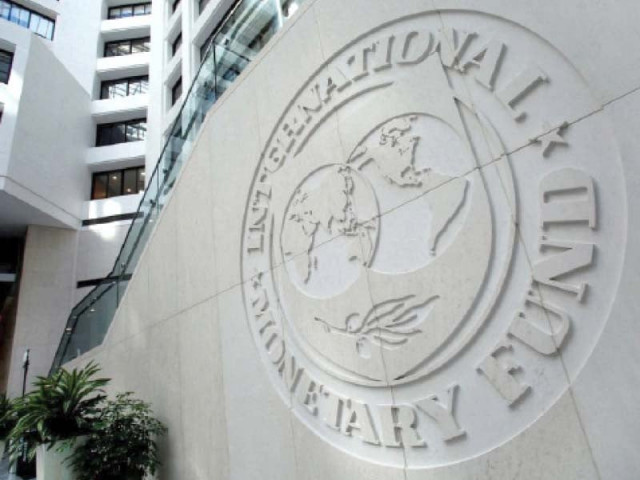Crucial IMF talks hang in balance
Global lender does not see $5b foreign loans materialising soon

The International Monetary Fund (IMF) suspects that Pakistan may not receive the projected $5 billion loans from multilateral and commercial creditors as Islamabad still awaits the Memorandum for Economic and Financial Policies (MEFP) draft with only two days left to conclude talks.
The talks have reached a crucial phase where it can tilt in any direction amid the government’s hope that it is well-positioned to clinch a deal by Thursday –the last scheduled day for the talks.
“We cannot say that there is a deadlock, as both sides are still engaged with an open mind,” a senior government functionary said at the end of the eighth day of talks.
He said that the IMF sought more information about the anticipated provincial cash surpluses before reaching a final primary fiscal deficit number.
The government had budgeted Rs750 billion provincial cash surplus for this fiscal year. During the first half (July-December), the four federating units showed only Rs177 billion in surplus. The surplus was Rs304 billion or 63% less than the comparative period of the last fiscal year.
Pakistan had hoped that by Monday, it would receive the first draft of the MEFP –the key programme document that will reflect the revised fiscal, monetary and external sector targets for the remainder of this fiscal year and the projections for the next fiscal year.
The IMF has not yet shared the draft of the MEFP with Pakistan, the top functionaries told The Express Tribune late Tuesday evening. Any delay could make the wind up of the talks very challenging in the next 48 hours – the remaining time in the conclusion of the scheduled negotiations.
The finance ministry officials hoped that the IMF may today (Wednesday) share the first draft of the MEFP. If the IMF gave the first draft, it would require an extra amount of work to agree to all the proposed numbers within the next 24 hours.
The sources said that the main hurdle was the power sector, which was hampering the finalisation of the fiscal tables. Similarly, the IMF also had issues with the gross external financing plan shared by the Ministry of Finance.
They added that the IMF was of the view that $3.6 billion worth of projected non-Chinese commercial loans would not materialise. The Ministry of Finance told the IMF that this money could be received, as one Gulf and one European bank had shown interest. But these offers were at a very preliminary stage and subject to the condition of staff-level agreement between Pakistan and the IMF.
Pakistan and the IMF are holding talks for completion of the 9th programme review and its successful culmination can unlock the $1.1 billion loan tranche.
Until the IMF deal was announced, the other multilateral and bilateral lenders would not opt to give major new loans to Pakistan.
The sources said that the IMF also revised downwards the projected loans from the World Bank by nearly $1 billion due to its suspicions about the budget support loans.
But the government team was of the view that at least $450 million second Resilient Institutions for Sustainable Economy (RISE-II) could be signed subject to the staff-level agreement. It also insisted that the $600 million second Programme for Affordable Energy (PACE-II) would also be pushed for approval.
After the IMF round of talks over the external financing numbers, Finance Minister Ishaq Dar on Tuesday held a meeting with the World Bank team, requesting it to consider approval of the loans within this fiscal year, according to sources.
Dar was said to have requested the WB team that since Pakistan had met the conditions for the RISE-II, it should consider the approval. A WB spokesperson told The Express Tribune last month that the RISE-II approval had been deferred till the next fiscal year.
Dar also requested the WB to consider the PACE-II for approval within this fiscal year and communicate the same to the IMF team. But the WB delegation remained non-committal about the dates, the sources said.
The sources said that the IMF also cut the government projection about receiving a $450 million loan from the Asian Infrastructure Investment Bank (AIIB).
The objections over the $5 billion lending plan could create troubles for the government in convincing the IMF about the external sector viability from now till June. The country was left with only $3 billion gross foreign exchange reserves.
The Net International Reserves target –the gross official foreign reserves minus the one-year debt repayments – would also undergo a big change.
The SBP representative insisted before the IMF that the central bank was on track to meet the performance criteria.
The sources said that despite the prime minister having given a go ahead to increase the electricity prices, there were still a few hurdles in convincing the IMF about the power sector issues.
One of the problems is that even if the government agrees to pass on the entire Rs671 billion impact to the consumers through price increase, the National Electric Power Regulatory Authority would not allow passing on the cost of some political decisions and the sector inefficiencies to the end consumers.
This still leaves behind a gap, which has to be bridged by certain measures, including the increase in taxes.
On account of resolution of the gas sector circular debt, a senior government functionary said that the gas sector flow will be plugged through tariff increase.



















COMMENTS
Comments are moderated and generally will be posted if they are on-topic and not abusive.
For more information, please see our Comments FAQ